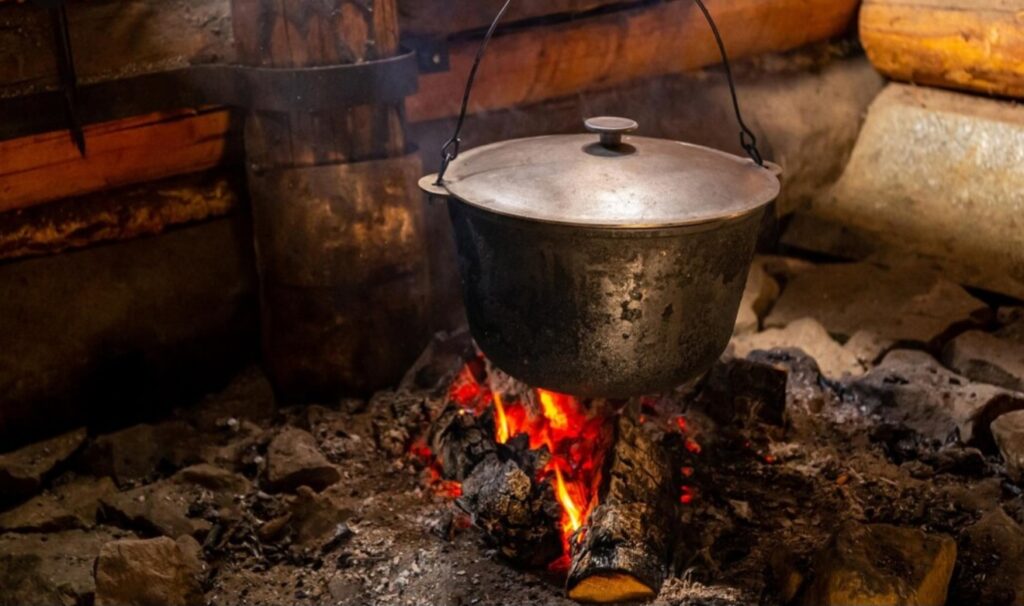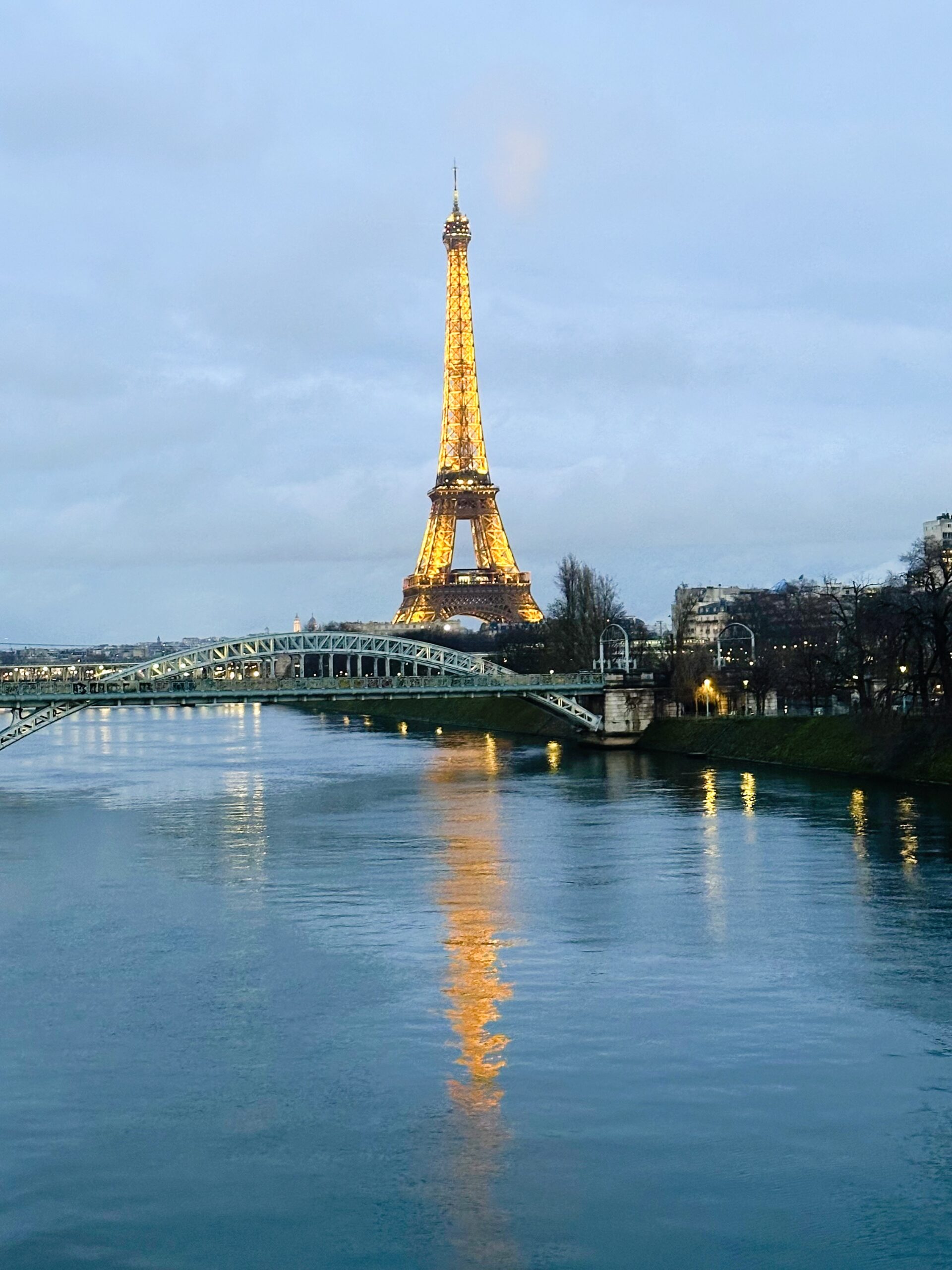In our Discerning Leadership Program, we sometimes use the story of “Stone Soup,” an old folk story, to illustrate how leaders initiate trust, collaboration, and creativity, making it possible for people to contribute to a common project and for all to find benefit. But there is even more to this story as it sheds light on human nature, and on ways of awakening our interdependence with one another.

The premise of the story is that a stranger arrives into town, hungry, and without food, but carrying a sack with an iron pot and a ladle. Unfortunately, there is a famine going on and due to the scarcity of food, people are hoarding what little they have. While the stranger goes around the village looking for someone to give him something to eat, he is turned away everywhere he goes. So, he decides to try something besides begging. Instead, the stranger goes to the water well in the center of town, draws water for the pot, makes a fire, and places a large stone in the pot.
As the water begins to simmer, some townspeople become curious about the stranger cooking something in his iron pot out in town square, and ask what he’s making. The stranger says, “I’m making Stone Soup! And it’s time to see how it’s coming along.” He takes the ladle spoon from his pack, samples the steaming soup, smacks his lips and says, “it seems to be missing something.” What does it need, they ask? “Some salt, and maybe an onion?” One of the townspeople replies, “oh, I have some salt!” And another says, “and I’m sure I have an onion.” Both bring what they have, and before long, the air in the town square carries the smell of the stewing onion.
More townspeople are interested to know what’s going on and when they hear that the Stone Soup is still missing something, they consider what they might have stored in their cellars and pantries. “I have some carrots!” “I have some potatoes!” “I have some bacon!”
Before long, the fragrance of the simmering Stone Soup is enriched and flavored by these new ingredients and more, offered freely by the townspeople, who are happy to contribute and soon to share in this warm and tasty soup. When the soup is finally ready, there is more than enough for the crowd, who enjoy not only their warm meal, but also the comfort and conviviality of their neighbors and the strangers they meet. They had been missing this sense of community since the famine began, when they had turned away from one another to look to their own needs. Truly, the stranger whom they had initially rejected was a blessing to them in more ways than one.
You might be wondering, what does this old folk tale have to tell us about leadership, let alone the Sunday gospel from John 6: 1-15 about the feeding of the five thousand, or the Feast of the Body and Blood of Christ?
At the beginning, both the folk tale and the Gospel passage begin with a scenario that focuses on what is apparently missing: food to feed the hungry. And certainly, the disciples are at a loss as they face this perceived scarcity. But just as the stranger in the story uses his wits to reconsider the situation and use the few resources he has at his disposal, so too, Jesus asked the disciples for a reassessment of the reality.
He asks not about what is missing, but what is available, and he starts his own “Stone Soup” story by asking them to collect what they can, inviting the people to recline, and then sharing everything they have, little and seemingly insufficient though it be. Then, something amazing happens… and we know that not only is every person fed, but as in many of these Gospel stories, there is an overflow of abundance.
It is natural that in the face of scarcity, people look to their own needs first out of fear for themselves. But by shifting attention from the perception of apparent lack to appreciating even what little they have at their disposal, Jesus helps us as leaders see how transformative it is when we move from a mindset of scarcity to one of appreciation and even abundance.
Likewise, in the folk tale, the stranger quickly discovers that when people are first approached with his request for food, they tend to distrust and reject him. But when the stranger tries a different approach, first sharing all his own, albeit insufficient resources, he is met in kind with an unselfish response by others, who in turn, share what they have.
There are many wonderful lessons here. Jesus says in the Gospel, “give them something to eat yourselves.” Trust is built by leaders first taking the initiative to risk their resources, model generosity, and make themselves vulnerable. So too, these stories say something about how the greatest miracles are never a “one man” or “one woman” show. They involve creating conditions for sharing, for individual contribution and participation, and for mutual exchange of gifts (the role of authority in a synodal Church).
In so many ways, these tasks of building trust and repairing relationships, creating space for contribution and participation, and bringing forth mutual benefit are becoming more and more urgent today. With the world facing so many crises, uncertainty and fear trigger a perception of scarcity even where there is none. Fear in turn leads to social regression, indifference, and even violence. Some people in positions of authority exploit this fear in order to drive wedges amongst people, to legitimize the inhumane treatment of migrants, refugees, and the poor. But this is not the way of Disciples of Christ.
On this Feast of Corpus Christi, we not only recall the gift of God in the sacrament of the Eucharist, we are also reminded that we are all in the Body of Christ. All of us are interdependent with one another as Children of God, and belonging to one another, we have responsibilities to share what we have, and what we are.
Some questions for reflection: Where and how might God be inviting me to shift my gaze from seeing through the eyes of scarcity to seeing with the eyes of possibility and abundance? What invisible resources might this reframe of perspective unlock and make available? How might I model the generous self giving that inspires others to offer what they have and who they are? We are living in times when every heart, every pair of hands are needed for the upbuilding of the Church and the service to the greater common good of the world. How might my belief in us all composing the Body of Christ, interdependent with one another, rather than separate, expand the circle of my care for others?
Let’s keep each other in prayer,




